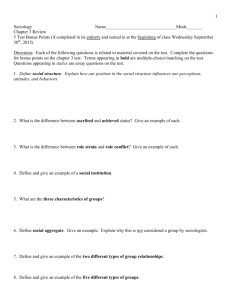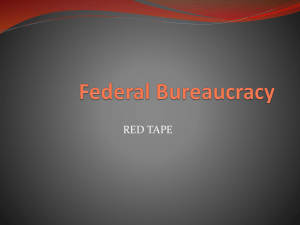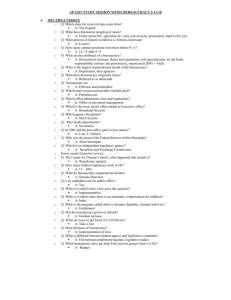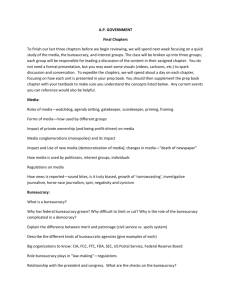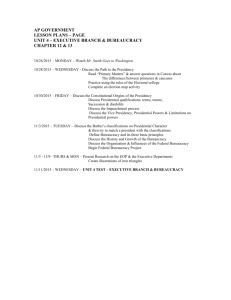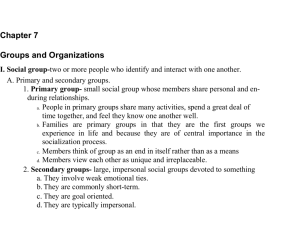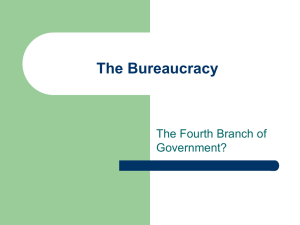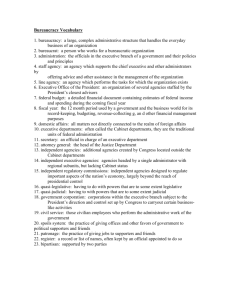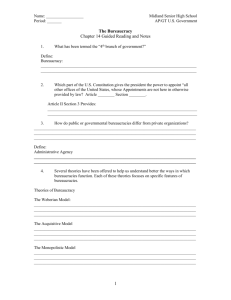The First English Colonies
advertisement
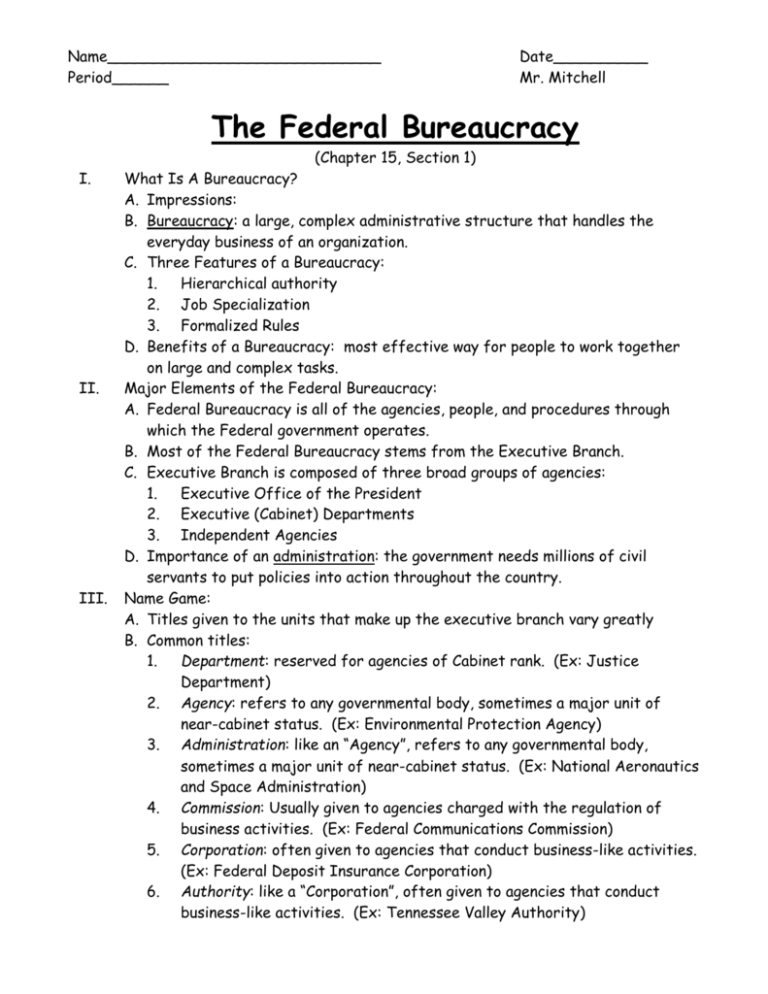
Name_____________________________ Period______ Date__________ Mr. Mitchell The Federal Bureaucracy (Chapter 15, Section 1) I. II. III. What Is A Bureaucracy? A. Impressions: B. Bureaucracy: a large, complex administrative structure that handles the everyday business of an organization. C. Three Features of a Bureaucracy: 1. Hierarchical authority 2. Job Specialization 3. Formalized Rules D. Benefits of a Bureaucracy: most effective way for people to work together on large and complex tasks. Major Elements of the Federal Bureaucracy: A. Federal Bureaucracy is all of the agencies, people, and procedures through which the Federal government operates. B. Most of the Federal Bureaucracy stems from the Executive Branch. C. Executive Branch is composed of three broad groups of agencies: 1. Executive Office of the President 2. Executive (Cabinet) Departments 3. Independent Agencies D. Importance of an administration: the government needs millions of civil servants to put policies into action throughout the country. Name Game: A. Titles given to the units that make up the executive branch vary greatly B. Common titles: 1. Department: reserved for agencies of Cabinet rank. (Ex: Justice Department) 2. Agency: refers to any governmental body, sometimes a major unit of near-cabinet status. (Ex: Environmental Protection Agency) 3. Administration: like an “Agency”, refers to any governmental body, sometimes a major unit of near-cabinet status. (Ex: National Aeronautics and Space Administration) 4. Commission: Usually given to agencies charged with the regulation of business activities. (Ex: Federal Communications Commission) 5. Corporation: often given to agencies that conduct business-like activities. (Ex: Federal Deposit Insurance Corporation) 6. Authority: like a “Corporation”, often given to agencies that conduct business-like activities. (Ex: Tennessee Valley Authority) Name_____________________________ Period______ IV. Date__________ Mr. Mitchell Staff vs. Line Agencies: A. Staff Agencies: serve in a support capacity by offering advice and other assistance in the management of the organization. (Ex: National Security Council advising President) B. Line Agencies: perform the tasks for which the organization exists. (Ex: Environmental Protection Agency enforcing anti-pollution laws)

